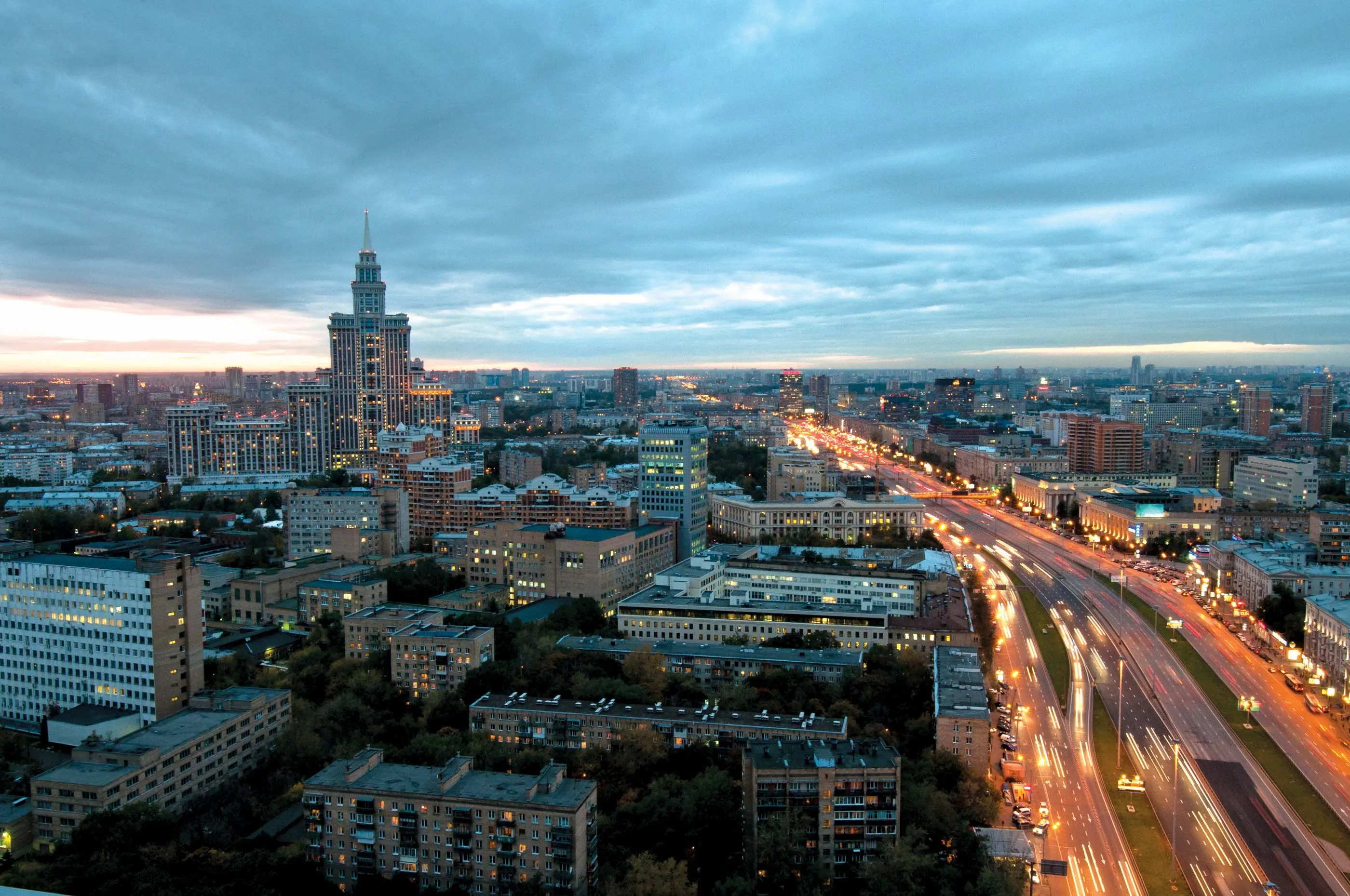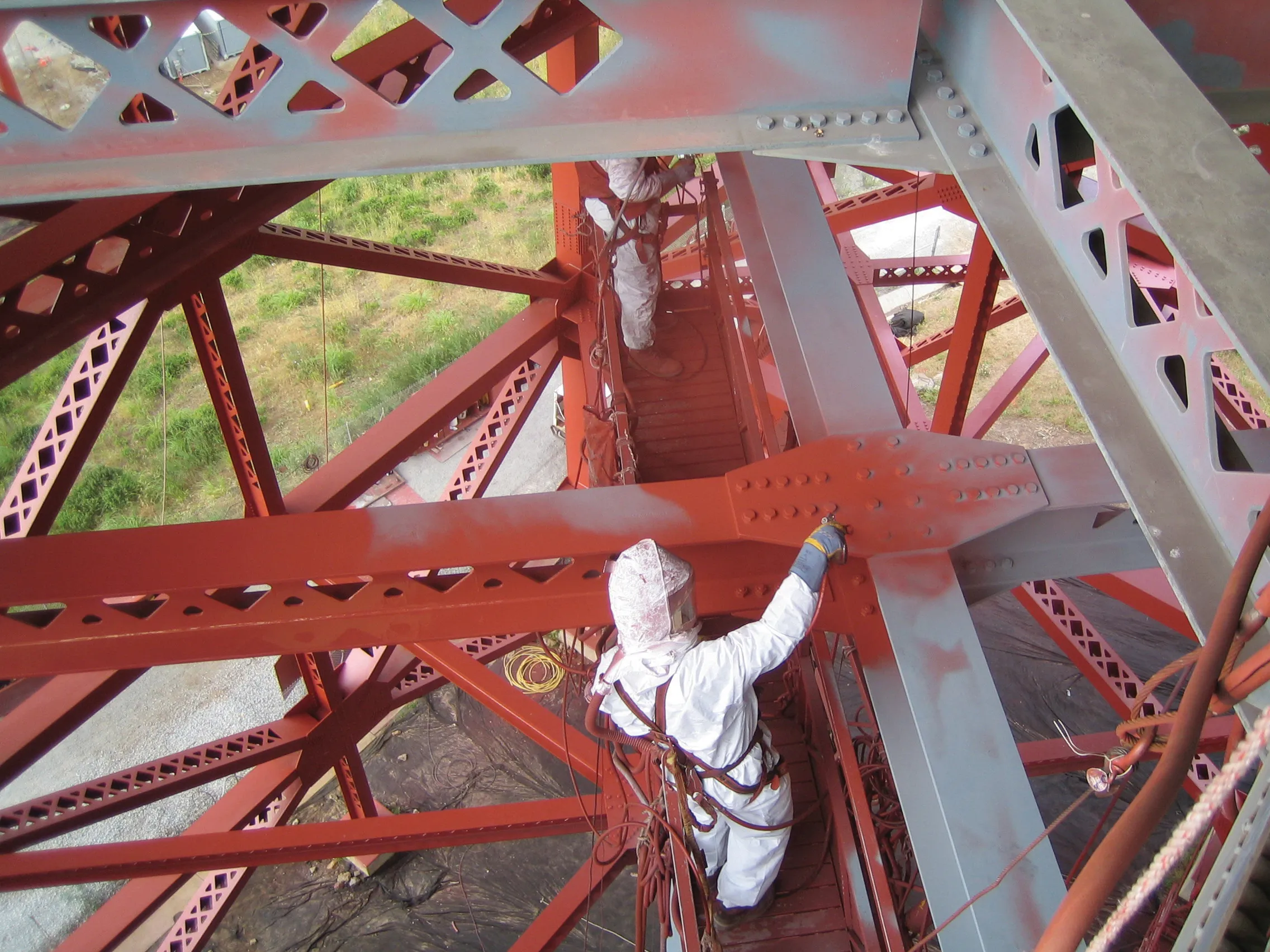Implementation of some large-scale investment projects for road building in Russia’s capital Moscow may be significantly delayed
A series of major documentation issues are the cause of the problem. These have delayed projects for up to nine tenders on the total sum of US$2.6 billion (95 billion rubles), with anomalies having been found by the Russian Federal Anti-Monopoly Service.
May 15, 2014
Read time: 7 mins

Implementation of some large-scale investment projects for road building in Russia’s capital Moscow may be significantly delayed
A series of major documentation issues are the cause of the problem. These have delayed projects for up to nine tenders on the total sum of US$2.6 billion (95 billion rubles), with anomalies having been found by the Russian Federal Anti-Monopoly Service.
The complaints to the FAS were filed by Bezopasny Otechestvo, a Russian public organisation that specialises in appeals regarding violations. The issues under the spotlight took place during the tenders and auctions for the distribution of state contracts.
One of the largest tenders registered with violations is for the construction of one of the sections of the Moscow - St Petersburg highway, which begins at Moscow Festival Street and ends on Dmitrov highway. The cost of the contract is estimated at $639 million (23.3 billion rubles). The project involves building of the northern section of the North-East Chord, a new 27km highway in Moscow, with the length up to 2km. This will be a new radial road, which will connect the Moscow - St Petersburg and Moscow – Noginsk highways, and will bypass the city’s centre.
The main bidder for the contract is2450 Mostotrest, owned by the Rotenberg brothers. The project should be implemented within 18 months. Mostotrest is already participating in the project for the building of the North-East Chord.
In late 2012 the company won the tender for the building of another section of the Chord route from Businovskaya interchange to Festival Street. The total value of the contract is estimated at $636 million (23.2 billion rubles). In addition, in 2012 Mostotrest received a contract for the building of the southern section of the North-West Chord, another planned highway in Moscow, which will stretch from the Leningrad and Skolkovo highways to MKAD.
The contract was granted to the company in accordance with a decree of Russia’s Prime-Minister Dmitry Medvedev. But this sparked criticisms from competitors and some Russian public associations and groups.
The implementation of the contract will be part of an investment program for the development of Moscow during the period 2014-2016.
According to Mostotrest, the company is currently considering the possibility to take part in other tenders for the building of both the North-East and North-West Chord. However the final decision will be taken after a detailed analysis.
There is also a possibility that reconstruction of the 30km section of the Kaluga highway, a Russian federal highway from Moscow to the border with Belarus at the cost of $702 million (25.6 billion rubles) will be also delayed. According to Sergei Kuznetsov, Moscow chief architect, after the reconstruction the traffic capacity of the Kaluga highway is expected to be increased by 2.5 times - up to 13,000 cars/hour. The project should be implemented within 18 months.
The third large tender that is likely to be delayed is the construction of the North-East chord from Izmaylovsky to Schelkovsky highways, which has an estimated cost of $337.5 million (12.3 billion rubles). The project involves building 5.5km of highway, as well as eight underground and two overground pedestrian crossings.
Finally, another tender involves reconstruction of one of the sections of the Moscow Automobile Ring Road (MKAD) from Kashira to Warsaw highways.
According to Russian media reports, among the major bidders for the project are: Mostotrest, owned by Arkady Rotenberg; ARKS, owned by Gennady Timchenko, one of the wealthiest people in the world; and6735 Engeocom, owned by the Rudyakov family.
Representatives of all major road contractors who had plans to participate in the tenders have already expressed their regrets over the delay of the tenders, which may cause significant losses.
In recent years their portfolios have significantly decreased, as the bulk of tenders were carried out in 2011-2012, and many projects have already been completed. Meanwhile, there were far fewer lucrative road building contracts put up for tender in 2013.
However there is a possibility that the situation will improve this year. In Moscow the city authorities have plans to construct over 30 new road links over the next few years.
According to Andrey Bochkarev, head of the construction department of the Moscow City Government, there are plans for a series of large-scale road building projects. The Moscow City Architecture Committee (Moskomarkhitektura) has already approved the majority of these projects.
Bochkarev also added that of the 80 urban development projects scheduled for implementation in Moscow this year, 30 of these are for road building. He said, “It is equally necessary to build new roads and interchanges, as well as to expand and reconstruct the already existing ones. In addition to big, large-scale projects, the Moscow City Government will also accelerate efforts for the building of small roads that will connect different districts of the city.”
He added that despite the efforts of the city authorities in recent years, the current situation with regard to its road network remains complex. This is reflected by the fact that at present, roads account for only 14% of the city’s area, compared to 30% in New York for example.
In the meantime, representatives of the Moscow City Government, the main organiser of the tenders, have already promised to sort out the current situation in the coming weeks. Organisation of all of the tenders was expected to be delayed until April.
It is worth noting that in December 2013, the Moscow City Government had announced more than 10 major tenders for the construction and reconstruction of the city’s roads. total amount of the contracts is estimated at more than $3.43 billion (125 billion rubles).
According to Sergei Sobyanin, mayor of Moscow, one of the main goals of the Moscow City Government in coming years is a plan for large-scale reconstruction of the Kaluga highway. All the works are expected to be completed by 2016.
According to Sobyanin's plans, reconstruction of the Kaluga highway will be synchronised with work on the construction of the Central Ring Road, a planned highway to be built in Moscow Oblast and measuring some 521km long.
In case of the Central Ring Road, the tender for the building of the first section of the road was also delayed until April. Among the bidders for the project are ARKS Stroygazkonsalting, owned by Ziyad Manasir, one of Russia’s leading developers, and Crocus Group, owned by another well-known Russian businessman Aras Agalarov.
Starting price for the building of the first section of the road is $1.44 billion (52.4 billion rubles), of which $1.25 billion (45.6 billion rubles) will be provided by the state. The duration of the contract is 23 years. Construction of the first section will begin later this year.
French engineering company SETEC is working with4137 KPMG on auditing the project and the partners are currently studying the relevant documentation. The contractor will be announced in April, while a long-term investment agreement is expected to be signed in the middle of May.
In all likelihood, the link will be tolled. The contractor will only be responsible for the construction and maintenance of the road, while the collection of fees will be the prerogative of state-owned Autodor. The rate has not yet been determined, however, according to Sergei Kelbakh, head of the company, it is expected to be set at the level of 2.32 rubles/km.
Selective extraction
In Russia a2395 Wirtgen surface mining machine is being used for selective extraction of limestone, eliminating the need for either drilling or blasting.
A member of the Eurocement Group, the ZAO Kavkazcement operation is located near the Black Sea in Russia and is one of the largest cement producers in the Northern Caucasus. By using these machines for selective mining of limestone, the operation is achieving high daily production rates without the expense and complication involved in drilling or blasting.
Since 2005, operations at ZAO Kavkazcement have relied on mechanical extraction using the surface mining method. Eurocement initially ordered two 2200 SMs, the smallest surface miners from the Wirtgen range. The performance of these units exceeded expectations and in 2008, the company opted to order the next larger size in the Wirtgen line-up. A key point for for Eurocement was that the surface miners can deliver the required tonnage with high productivity and at low operating costs. The machines also crush the material to the required size and are able to operate effectively in the environment. The firm has since grown its fleet, with three 2500 SM currently operating at the site.
One advantages of surface mining over drilling and blasting is that the limestone can be loaded directly onto trucks by using a transfer system. Eurocement makes use of further loading methods, however. If, for example, material is required for a temporary embankment stabilisation, the machines discharge the cut limestone sideways onto a pile. This ensures that the cutting process is always entirely independent from the truck loading. Another option for material loading is to deposit the limestone as a windrow behind the surface miner without the use of the loading conveyor.
A series of major documentation issues are the cause of the problem. These have delayed projects for up to nine tenders on the total sum of US$2.6 billion (95 billion rubles), with anomalies having been found by the Russian Federal Anti-Monopoly Service.
The complaints to the FAS were filed by Bezopasny Otechestvo, a Russian public organisation that specialises in appeals regarding violations. The issues under the spotlight took place during the tenders and auctions for the distribution of state contracts.
One of the largest tenders registered with violations is for the construction of one of the sections of the Moscow - St Petersburg highway, which begins at Moscow Festival Street and ends on Dmitrov highway. The cost of the contract is estimated at $639 million (23.3 billion rubles). The project involves building of the northern section of the North-East Chord, a new 27km highway in Moscow, with the length up to 2km. This will be a new radial road, which will connect the Moscow - St Petersburg and Moscow – Noginsk highways, and will bypass the city’s centre.
The main bidder for the contract is
In late 2012 the company won the tender for the building of another section of the Chord route from Businovskaya interchange to Festival Street. The total value of the contract is estimated at $636 million (23.2 billion rubles). In addition, in 2012 Mostotrest received a contract for the building of the southern section of the North-West Chord, another planned highway in Moscow, which will stretch from the Leningrad and Skolkovo highways to MKAD.
The contract was granted to the company in accordance with a decree of Russia’s Prime-Minister Dmitry Medvedev. But this sparked criticisms from competitors and some Russian public associations and groups.
The implementation of the contract will be part of an investment program for the development of Moscow during the period 2014-2016.
According to Mostotrest, the company is currently considering the possibility to take part in other tenders for the building of both the North-East and North-West Chord. However the final decision will be taken after a detailed analysis.
There is also a possibility that reconstruction of the 30km section of the Kaluga highway, a Russian federal highway from Moscow to the border with Belarus at the cost of $702 million (25.6 billion rubles) will be also delayed. According to Sergei Kuznetsov, Moscow chief architect, after the reconstruction the traffic capacity of the Kaluga highway is expected to be increased by 2.5 times - up to 13,000 cars/hour. The project should be implemented within 18 months.
The third large tender that is likely to be delayed is the construction of the North-East chord from Izmaylovsky to Schelkovsky highways, which has an estimated cost of $337.5 million (12.3 billion rubles). The project involves building 5.5km of highway, as well as eight underground and two overground pedestrian crossings.
Finally, another tender involves reconstruction of one of the sections of the Moscow Automobile Ring Road (MKAD) from Kashira to Warsaw highways.
According to Russian media reports, among the major bidders for the project are: Mostotrest, owned by Arkady Rotenberg; ARKS, owned by Gennady Timchenko, one of the wealthiest people in the world; and
Representatives of all major road contractors who had plans to participate in the tenders have already expressed their regrets over the delay of the tenders, which may cause significant losses.
In recent years their portfolios have significantly decreased, as the bulk of tenders were carried out in 2011-2012, and many projects have already been completed. Meanwhile, there were far fewer lucrative road building contracts put up for tender in 2013.
However there is a possibility that the situation will improve this year. In Moscow the city authorities have plans to construct over 30 new road links over the next few years.
According to Andrey Bochkarev, head of the construction department of the Moscow City Government, there are plans for a series of large-scale road building projects. The Moscow City Architecture Committee (Moskomarkhitektura) has already approved the majority of these projects.
Bochkarev also added that of the 80 urban development projects scheduled for implementation in Moscow this year, 30 of these are for road building. He said, “It is equally necessary to build new roads and interchanges, as well as to expand and reconstruct the already existing ones. In addition to big, large-scale projects, the Moscow City Government will also accelerate efforts for the building of small roads that will connect different districts of the city.”
He added that despite the efforts of the city authorities in recent years, the current situation with regard to its road network remains complex. This is reflected by the fact that at present, roads account for only 14% of the city’s area, compared to 30% in New York for example.
In the meantime, representatives of the Moscow City Government, the main organiser of the tenders, have already promised to sort out the current situation in the coming weeks. Organisation of all of the tenders was expected to be delayed until April.
It is worth noting that in December 2013, the Moscow City Government had announced more than 10 major tenders for the construction and reconstruction of the city’s roads. total amount of the contracts is estimated at more than $3.43 billion (125 billion rubles).
According to Sergei Sobyanin, mayor of Moscow, one of the main goals of the Moscow City Government in coming years is a plan for large-scale reconstruction of the Kaluga highway. All the works are expected to be completed by 2016.
According to Sobyanin's plans, reconstruction of the Kaluga highway will be synchronised with work on the construction of the Central Ring Road, a planned highway to be built in Moscow Oblast and measuring some 521km long.
In case of the Central Ring Road, the tender for the building of the first section of the road was also delayed until April. Among the bidders for the project are ARKS Stroygazkonsalting, owned by Ziyad Manasir, one of Russia’s leading developers, and Crocus Group, owned by another well-known Russian businessman Aras Agalarov.
Starting price for the building of the first section of the road is $1.44 billion (52.4 billion rubles), of which $1.25 billion (45.6 billion rubles) will be provided by the state. The duration of the contract is 23 years. Construction of the first section will begin later this year.
French engineering company SETEC is working with
In all likelihood, the link will be tolled. The contractor will only be responsible for the construction and maintenance of the road, while the collection of fees will be the prerogative of state-owned Autodor. The rate has not yet been determined, however, according to Sergei Kelbakh, head of the company, it is expected to be set at the level of 2.32 rubles/km.
Selective extraction
In Russia a
A member of the Eurocement Group, the ZAO Kavkazcement operation is located near the Black Sea in Russia and is one of the largest cement producers in the Northern Caucasus. By using these machines for selective mining of limestone, the operation is achieving high daily production rates without the expense and complication involved in drilling or blasting.
Since 2005, operations at ZAO Kavkazcement have relied on mechanical extraction using the surface mining method. Eurocement initially ordered two 2200 SMs, the smallest surface miners from the Wirtgen range. The performance of these units exceeded expectations and in 2008, the company opted to order the next larger size in the Wirtgen line-up. A key point for for Eurocement was that the surface miners can deliver the required tonnage with high productivity and at low operating costs. The machines also crush the material to the required size and are able to operate effectively in the environment. The firm has since grown its fleet, with three 2500 SM currently operating at the site.
One advantages of surface mining over drilling and blasting is that the limestone can be loaded directly onto trucks by using a transfer system. Eurocement makes use of further loading methods, however. If, for example, material is required for a temporary embankment stabilisation, the machines discharge the cut limestone sideways onto a pile. This ensures that the cutting process is always entirely independent from the truck loading. Another option for material loading is to deposit the limestone as a windrow behind the surface miner without the use of the loading conveyor.







